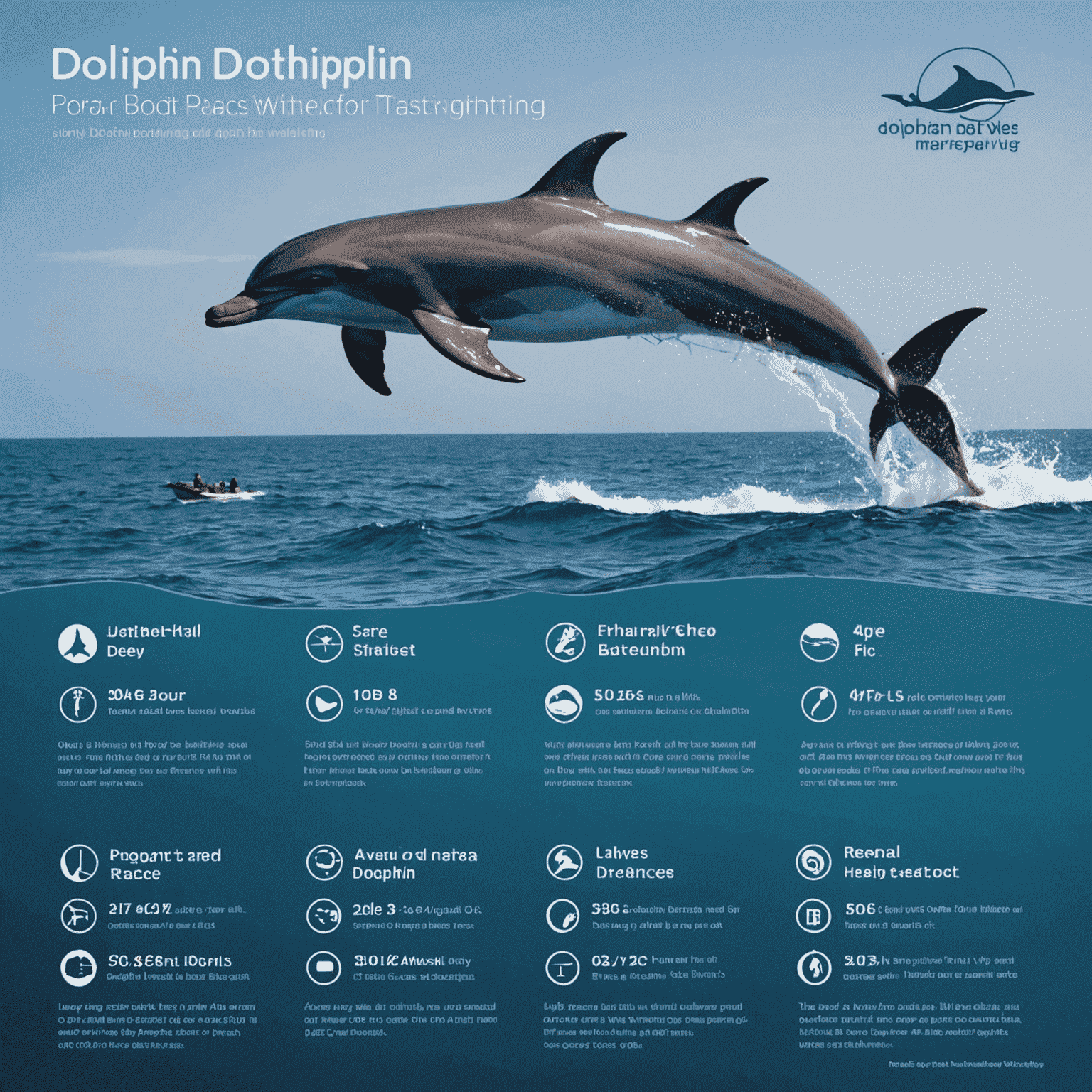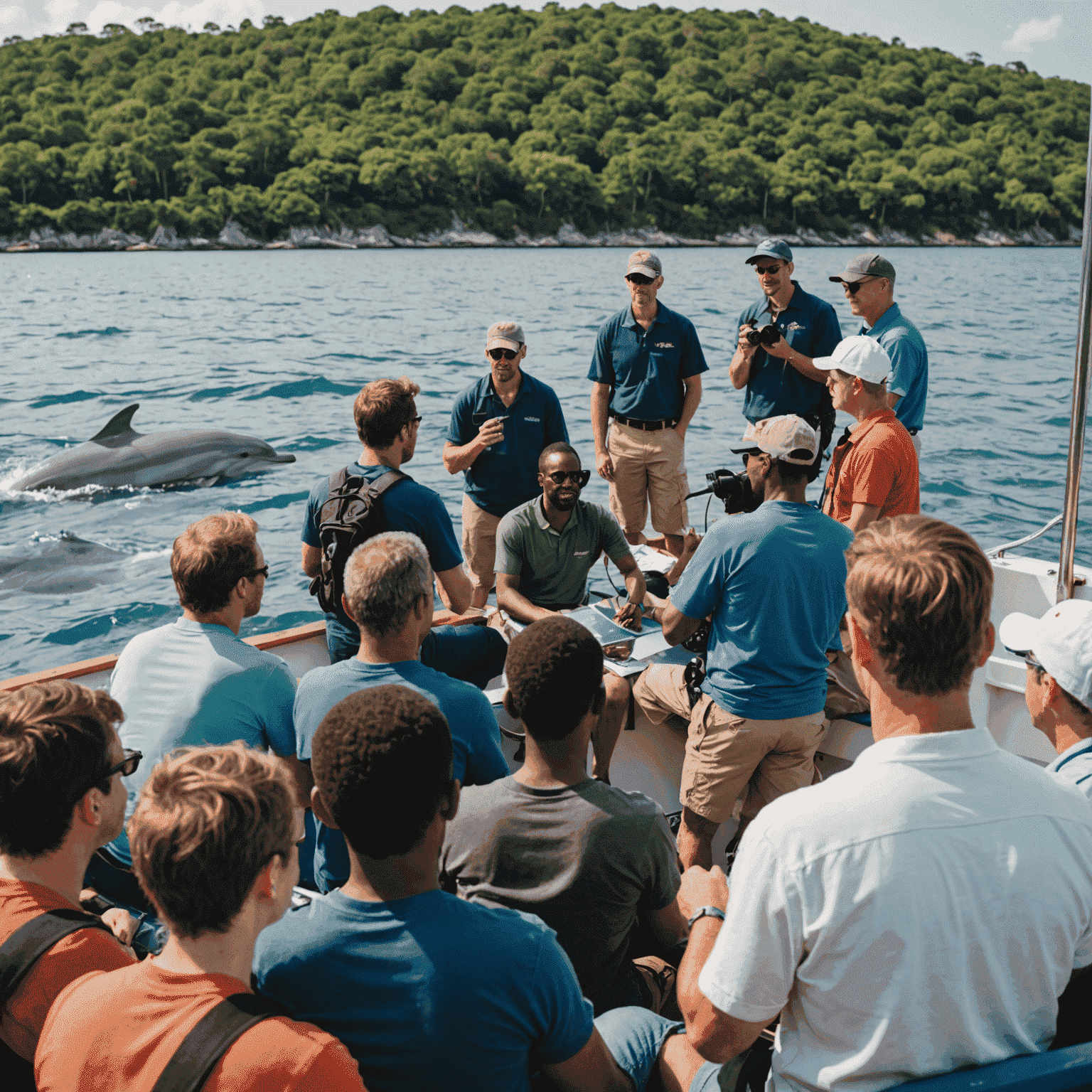Dolphin Watching: Responsible Practices

Observing dolphins in their natural habitat can be an awe-inspiring experience, but it's crucial to do so responsibly. Let's explore ethical ways to enjoy these magnificent marine mammals without disturbing their ecosystem.
Choose Responsible Tour Operators
When planning your dolphin watching adventure, opt for tour operators who prioritize the well-being of marine life. Look for companies that:
- Adhere to local and international wildlife viewing guidelines
- Employ trained naturalists or marine biologists as guides
- Use eco-friendly vessels with minimal environmental impact
- Limit the number of passengers and duration of encounters
Maintain a Safe Distance
Respecting the dolphins' space is paramount. Responsible operators will:
- Keep a minimum distance of 50-100 meters from dolphin pods
- Never chase, encircle, or separate dolphins from their group
- Allow dolphins to approach the boat on their own terms

Quiet Observation
Dolphins are sensitive to noise pollution. To minimize disturbance:
- Speak quietly and avoid sudden loud noises
- Turn off boat engines or switch to neutral when near dolphins
- Don't use underwater speakers or sonar devices
No Feeding or Swimming
While it may be tempting, never:
- Feed wild dolphins as it alters their natural foraging behavior
- Attempt to swim with or touch wild dolphins
- Throw any objects into the water
Educate Yourself
Understanding dolphin behavior and ecology enhances your experience and promotes conservation. Learn about:
- Different dolphin species in the area you're visiting
- Their social structures and communication methods
- Conservation challenges facing dolphin populations

Support Conservation Efforts
Consider ways to give back to dolphin conservation:
- Donate to reputable marine conservation organizations
- Participate in beach clean-ups to reduce ocean pollution
- Spread awareness about responsible wildlife viewing practices
By following these responsible practices, we can enjoy the wonder of dolphin watching while ensuring these intelligent creatures and their habitats remain protected for generations to come. Remember, ethical marine life encounters are not just about what we gain, but how we contribute to the preservation of these magnificent animals and their ocean home.